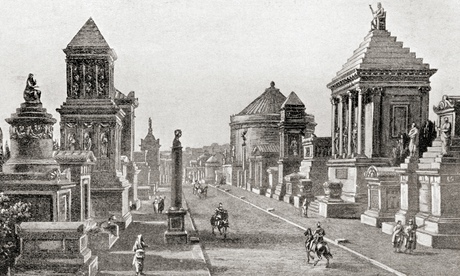
The via Appia was hailed as the "regina viarum", the queen of roads, by the Roman poet Statius in the first century. For the classicist Robert Kaster, there is no road in Europe that has been so heavily travelled by people with so many different aims, from conquest to pilgrimage. As he rightly says, "to travel the Appia today is to step in the tracks of countless ghosts". In this slim but evocative history, he journeys the length of the Appia (35o miles) by foot and by car, from Rome to Brindisi in the heel of Italy, and on the way tells the remarkable story of Europe's first great road.
Conceived in the fourth century BC by Appius Claudius Caecus, it was one of the Romans' greatest engineering achievements: marshes were drained, embankments and bridges built, and cuttings made through hills. The road itself consisted of five layers, including the basalt paving stones on top, now (where the road still exists) deeply furrowed by countless wagons. As Goethe said of the Romans, "these people built for eternity". Kaster proves himself a knowledgable and engaging guide on this journey through the past and present of Italy.
• To order The Appian Way go to press.uchicago.edu/ucp/books

